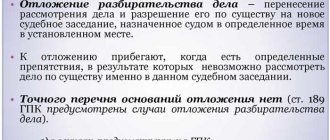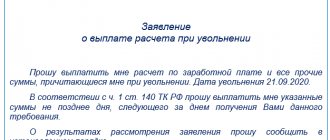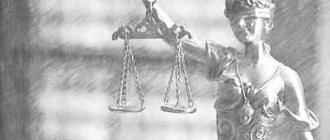Petition to obtain evidence in a civil case.
At _________________________________ _________________________________ (name of court) _________________________________ _________________________________ (mailing address)
From: ___________________________________ ___________________________________ ___________________________________ __________________________________ (full name, address, telephone)
Request for evidence
For the purpose of a comprehensive, correct and objective consideration of the civil case based on the claim of Ivanova S.A. to Ivanov I.I. on the collection of alimony for the maintenance of a minor child in a fixed sum of money, I consider it necessary to request the following evidence.
1. Information about available funds (deposits, accounts, etc.) Ivanova I.I.; statement of cash flows on accounts for 2017-2018 indicating the purpose of payment opened in the name of the defendant at bank branches:
PJSC "Sberbank of Russia" (302028, Orel, Brestskaya st., 12); JSC Alfa-Bank (302040, Orel, 8 Marta St., 19);
2. An extract from the unified state register of rights to real estate and transactions with it about the rights of an individual to his real estate objects in the Office of the Federal Service for State Registration, Cadastre and Cartography for the Oryol Region (302020, Orel, Polesskaya St., d. 28).
I believe that this evidence will help establish the fact that the defendant is an individual entrepreneur, owns premises for production and economic purposes for making a profit, and that the defendant has the necessary funds to satisfy my claim for the recovery of alimony for a minor child in a fixed amount.
I am not able to obtain these documents on my own, since in accordance with the legislation of the Russian Federation, the above information can only be provided to owners, possessors and their authorized representatives, heirs, law enforcement agencies, state and local government bodies, courts, and tax authorities. I am not one of the above persons, therefore, I also cannot make a corresponding request.
Based on the above, and guided by Part 1 of Art. 35, parts 1 and 2 art. 57 Code of Civil Procedure of the Russian Federation,
ASK:
Request from:
1. PJSC "Sberbank of Russia" (302028, Orel, Brestskaya St., 12), JSC "ALFA-BANK" (302040, Orel, 8 March St., 19), information on available funds ( deposits, accounts, etc.) Ivanova I.I.; a statement of cash flows on accounts for 2017-2018 indicating the purpose of payment opened in the name of the defendant at bank branches.
2. Office of the Federal Service for State Registration, Cadastre and Cartography for the Oryol Region (302020, Orel, Polesskaya St., 28) an extract from the unified state register of rights to real estate and transactions with it on the rights of an individual to his existing real estate objects.
Date_________ Signature__________________
Commentary on Article 57 of the Code of Civil Procedure of the Russian Federation
1. Judicial proof consists of stages or elements. Thus, we can highlight: 1) determining the range of facts to be proven; 2) identification and collection of evidence in the case; 3) examination of evidence; 4) evaluation of evidence. The totality of all these stages determines the process of judicial proof.
Determining the range of facts to be proven means determining the subject of proof for each civil case considered in court.
Identification and collection of evidence in a case is the activity of the persons participating in the case, as well as the court, to establish what evidence can confirm or refute the facts included in the subject of proof.
The most important ways to identify evidence are: 1) familiarization of the judge with the statement of claim (complaint, statement) received in court; 2) familiarization with the attached written materials; 3) conducting conversations with the plaintiff, and, if necessary, with other persons participating in the case (defendant, third parties) and their representatives; 4) appeal to the rules of law governing controversial material legal relations, since they may contain indications of evidence; 5) familiarization with the explanations of the Plenum of the Supreme Court of the Russian Federation and reviews of judicial practice on certain categories of cases, often containing important indications of the evidence that should be used to establish certain circumstances.
Collection of evidence is the activity of the court, persons participating in the case and their representatives, aimed at ensuring the availability of the necessary evidence by the time the case is heard in court.
The main methods of collecting evidence: 1) presentation by the parties, other persons involved in the case and their representatives; 2) reclaiming them by the court from the persons and organizations in which they are located; 3) issuing requests for the right to receive and present them to the court to persons applying for written or material evidence; 4) summons to court as a witness; 5) appointment of an examination; 6) sending letters rogatory to collect evidence to other courts; 7) providing evidence.
The collection of evidence takes place mainly at the stage of preparing the case for trial and is carried out primarily by the parties and other persons participating in the case, and, if necessary, by the judge. But even during the trial, the collection of evidence can continue.
The examination of evidence takes place during the trial of civil cases.
Evaluation of evidence accompanies the entire process of proof and completes it.
2. According to Part 1 of Art. 56 of the Code of Civil Procedure “each party must prove the circumstances to which it refers as the basis for its claims and objections, unless otherwise provided by federal law.” Although by virtue of Art. 56 of the Code of Civil Procedure, the duty of proof lies with the parties, the duty of presenting evidence rests with all persons participating in the case, especially since the duty of proof should extend not only to the parties, but also to other persons participating in the case.
Imposing on the persons participating in the case the obligation to present evidence is a manifestation of the principle of adversarial behavior of the parties. Each person participating in the case presents to the court evidence confirming the presence or absence of circumstances included in the subject of proof. However, the persons involved in the case may, for various reasons, fail to provide all the necessary evidence, without which the court is unable to resolve the case on its merits. In this regard, the court has the right to invite the persons involved in the case to provide additional evidence. It is important to emphasize that, firstly, this is not the duty of the court, but its right. This approach is also dictated by the adversarial principle, by virtue of which the court was removed from the main subjects of collecting evidence back in 1995. Secondly, the court only invites, but does not oblige, the persons participating in the case to provide additional evidence.
Often, persons involved in a case cannot obtain evidence held by other persons (for example, in cases of reinstatement at work, the administration of an enterprise refuses to issue a copy of the employment order, etc.). In this regard, the court provides assistance to persons participating in the case in collecting and requesting the necessary evidence. However, this requires a combination of circumstances: 1) we are talking only about the necessary evidence (see commentary to Article 55 of the Code of Civil Procedure); 2) for persons participating in the case, the presentation of this evidence is difficult; 3) there is a petition from a person participating in the case to obtain evidence. In this case, the court does not replace the person participating in the case, but only provides the necessary assistance in collecting and requesting the necessary evidence. True, in the rarest cases the court plays a more active role in collecting evidence (Part 2 of Article 249 of the Code of Civil Procedure).
Part 2 of the commented article regulates the procedure for drawing up a petition to obtain evidence, but only the substantive part of the petition is determined. The introductory part of the petition is not defined by law, but traditionally it indicates to which court, from whom and for what case the petition is being filed.
The content of the request to obtain evidence must contain the information established by Part 2 of the commented article:
1) designation of the evidence that needs to be requested (copy of the order, copy of the court decision, copy of the investigator’s decision to refuse to initiate a case, etc.);
2) an indication of what circumstances of the case can be confirmed or refuted by this evidence. In this case, it is important that the circumstance is included in the subject of proof in the case, and the evidence is relevant. In this case, the court has the right to refuse to request not only irrelevant, but also relevant evidence if the case already has enough evidence confirming or refuting the same fact;
3) an indication of the reasons preventing independent receipt of evidence;
4) location of the evidence.
The Civil Procedure Code does not talk about the form of the petition, but implies that it must be written, especially since the presentation of evidence takes place at the stage of preparing the case for trial.
In case of refusal to satisfy a request to obtain evidence, it is not prohibited to apply to the court again. During the consideration of the case, it may turn out that evidence that was initially not relevant to the case under consideration later became relevant.
When granting a motion, the court either issues a request to the party to obtain evidence or requests evidence directly. In this case, the law again speaks of the party, but it means all the persons participating in the case. If the court requests evidence directly, then through the court office the corresponding request is sent to the organization, official, etc., who has this evidence.
The person who has the evidence requested by the court sends it to the court or hands it over to the person who has the corresponding request.
3. Part 3 of the commented article provides for the duties and responsibilities of officials and citizens. In particular, officials or citizens who are unable to provide the requested evidence at all or within the time period established by the court must, indicating the reasons, notify the court about this within five days from the date of receipt of the request. In case of failure to notify the court, as well as in case of failure to comply with the court's request to present evidence for reasons recognized by the court as disrespectful, a fine is imposed on the guilty officials or citizens who are not persons participating in the case.
According to Part 4 of the commented article, the imposition of a fine does not relieve the relevant officials and citizens in possession of the requested evidence from the obligation to present it to the court. The Code of Civil Procedure does not regulate the procedure for imposing fines on guilty persons.
Relevance and admissibility of evidence under the Code of Civil Procedure of the Russian Federation. Evaluation of evidence in civil proceedings.
In accordance with Art. 55 of the Code of Civil Procedure, evidence in a case is that information about the facts on the basis of which the court establishes the presence or absence of circumstances justifying the demands and objections of the parties, and other circumstances that are important for the proper consideration and resolution of the case. In other words, the court accepts only relevant evidence for consideration.
In accordance with Art. 59 of the Civil Procedure Code, the court accepts only that evidence that is relevant for the consideration and resolution of the case. Hence, only those that are relevant for the correct consideration and resolution of the case are recognized by the court as relevant evidence. When deciding on the relevance of evidence, it is important: 1) to determine whether the facts to establish which the evidence is proposed are significant for the case; 2) whether the evidence can confirm or refute the relevant fact.
Determining the relevance of evidence allows you to avoid cluttering the case with unnecessary, unrelated evidence and thereby ensure its resolution with the least amount of time and effort of the court and the persons involved in the case. However, in some cases, a lot of relevant evidence may be collected (for example, statements from eyewitnesses to the accident). Because of this, the court has the right to limit itself to the testimony of some witnesses, considering that the testimony of other persons about the same facts is not important for the case. Thus, relevant facts may be excluded from those examined in court.
Since not only substantive but also procedural facts are to be established in the case, the evidence of the latter should also be important for the case, i.e. must be relevant.
If the court believes that this or that evidence is not relevant to the case, then it refuses to accept it. At the same time, the persons participating in the case, during the trial of the case, have the right to again submit a petition to study or request the same evidence. If the relevance of evidence characterizes its essence, then admissibility characterizes the form of evidence.
The admissibility of evidence means that the circumstances of the case, which by law must be confirmed by certain means of proof, cannot be confirmed by any other means of proof (Article 60 of the Code of Civil Procedure).
A more general rule on admissibility is formulated in Part 1 of Art. 55 of the Code of Civil Procedure: evidence in the case is information about the facts obtained in the manner prescribed by law. This means that even if a circumstance in a case is confirmed by a certain means of proof (as stated in Article 60 of the Code of Civil Procedure), but the procedure for performing this action is violated, the evidence cannot be admitted.
The basic rule for the admissibility of evidence is its relevance. Irrelevant evidence cannot be admitted to trial. The next rule is that the fact relevant to the case must be confirmed or refuted by the means of proof specified in the law. The Civil Procedure Code provides an exhaustive list of means of proof (unlike the Arbitration Procedure Code): explanations of the parties and third parties, testimony of witnesses, written and material evidence, audio and video recordings, expert opinions. In this case, the procedure for collecting, presenting and examining evidence established by the Code of Civil Procedure must be observed.
The admissibility of evidence may be of a general or special nature. The general nature of admissibility means that in all cases, regardless of their category, the requirement to obtain information from the means of evidence specified by law must be observed in compliance with the procedure for collecting, presenting and examining evidence. Violation of these requirements leads to inadmissibility of evidence. Consequently, the admissibility of evidence is, first of all, determined by compliance with the procedural form of evidence.
The special nature of admissibility is the rules that require the use of certain evidence to establish the circumstances of the case (positive admissibility) or prohibit the use of certain evidence (negative admissibility). If, in accordance with the requirements of the law, a transaction is subject to notarization or state registration, then the court must have the appropriate document containing the necessary details. The norm regarding the consequences of non-compliance with the simple written form of the transaction has a negative character. If a transaction is concluded in violation of a simple written form, then according to Art. 162 of the Civil Code in the event of a dispute, the parties are deprived of the right to refer to witness testimony to confirm the transaction and its terms. However, the law allows the use of other evidence. However, it is permissible to refer to witness testimony if the matter concerns the recognition of a transaction as invalid (Articles 166-179 of the Civil Code).
In accordance with Art. 812 of the Civil Code, it is unacceptable to use testimony when challenging the hopelessness of a loan agreement, if the latter, in accordance with Art. 808 of the Civil Code had to be made in writing. An exception when testimony is allowed when challenging the hopelessness of a loan agreement is the conclusion of an agreement under the influence of deception, violence, threats, a malicious agreement between the borrower’s representative and the lender, or a confluence of difficult circumstances.
In accordance with Art. 67 of the Civil Procedure Code, the court evaluates evidence based on internal conviction, based on a comprehensive, complete, objective and direct examination of the evidence available in the case. No evidence has predetermined value for the court. The formation of internal conviction is significantly influenced by the judge’s worldview, an important element of which is legal awareness. Legal awareness helps to correctly understand and interpret the rule of law to be applied, evaluate the evidence collected in the case, etc. Legal awareness is also important for those involved in the case, who also evaluate the evidence from the point of view of their legal position.
Legislation, establishing criteria for evaluating evidence, turns to the court. The court evaluates the evidence that was presented by the parties and examined in court.
The book “Actual Lawyer” by Y.A. Yuksha








